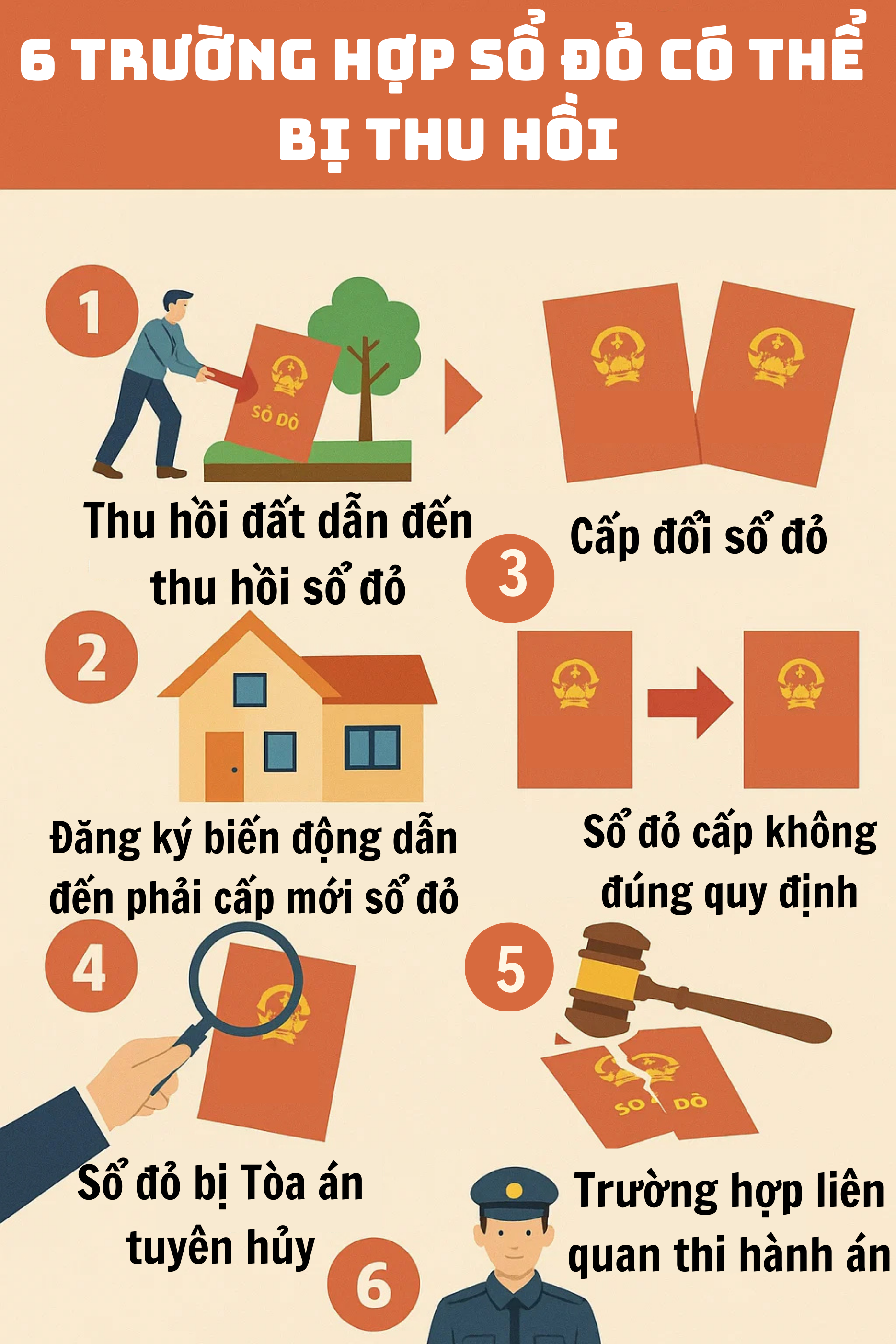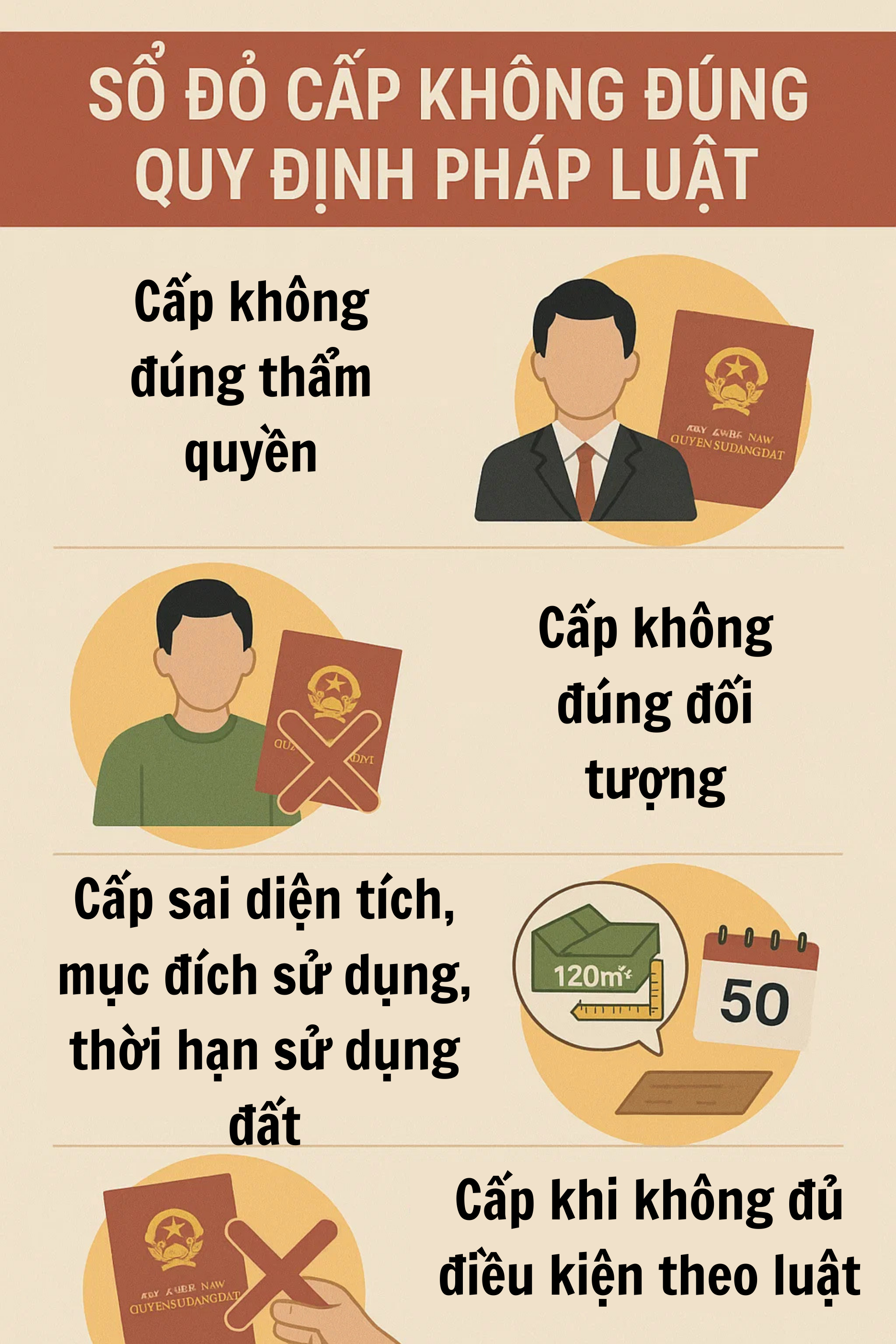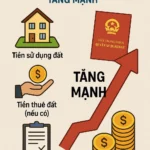The 2024 Land Law, effective from January 1, 2025, has introduced specific and stringent regulations regarding the revocation of Land Use Right Certificates (red books). These measures aim to ensure transparent and lawful land management. There are six distinct scenarios where a red book may be reclaimed, primarily involving errors in issuance, incorrect recipient identification, or decisions made by competent authorities.
The State is Authorized to Revoke Red Books in the Following Cases

Land Reclamation Leading to Red Book Revocation
When the State reclaims the entire land area listed on an issued red book, the corresponding certificate is also revoked.
Red Book Replacement
If individuals initiate the process to replace their Land Use Right Certificate, the old red book is revoked as per regulations.
Land Registration Changes Requiring a New Red Book
When land users undertake changes such as altering land purposes, subdividing or merging plots, rectifying records, or modifying assets attached to the land, and a new red book is issued, the old one is revoked.
Red Books Issued in Violation of Legal Provisions
This category encompasses the most common violations, including:

Such cases are subject to revocation to ensure accuracy and legality in land management.
Red Books Annulled by Court Order
When a court issues a legally binding judgment or decision mandating the annulment of a Land Use Right Certificate, the competent authority must revoke the issued red book.
Cases Related to Enforcement of Court Decisions
A red book is revoked when:
The land plot or assets attached to it are sold at auction,
Or when the court or enforcement agency requires the surrender of the old red book, but the obligated party fails to comply.
Red Book Revocation Procedure
The 2024 Land Law outlines a clear process for addressing incorrectly issued red books, ensuring the protection of citizens’ rights and the accountability of managing agencies.
Step 1: Submission of Petition by Land User
Citizens submit a written petition to the Public Administration Service Center, requesting a review of any errors in the red book issuance.
Step 2: Receipt and Review of Documents
The receiving agency: Verifies the completeness of the documents; Issues a receipt and an appointment for result collection.
If documents are incomplete, citizens receive a request for additional information. The file is then forwarded to the People’s Committee of the commune where the land is located.
Step 3: Review and Processing by the Commune People’s Committee
The Commune People’s Committee: Directs the Land Registration Office to examine the red book issuance file; Re-verifies information as per Article 152 of the 2024 Land Law; Submits to the Chairman of the Commune People’s Committee a decision to revoke the incorrectly issued red book and, if eligible, issues a new red book.
Subsequently, the file is sent to the Land Registration Office for: Rectification of land records; Updating of land data; And issuance of the new red book to the citizen via the receiving agency.
The clear stipulation of red book revocation cases and the handling procedure enhances state management effectiveness, reduces errors in issuance, and minimizes exploitation of legal loopholes. The 2024 Land Law is anticipated to foster fairness, transparency, and greater public confidence in land-related procedures.
Critical Announcement for All Citizens Regarding Land Use Rights Certificates Starting 2026
Individuals seeking to obtain a land use right certificate (red book) should ensure the process is completed before January 1, 2026.
How Will Ho Chi Minh City Manage Thousands of Public Properties Post-Merger?
Following the merger, Ho Chi Minh City now possesses thousands of state-managed properties, land plots, buildings, and headquarters that remain unused. As a result, the Department of Finance has been urgently tasked with advising and proposing solutions to the HCMC People’s Committee for the efficient handling and allocation of these public assets, ensuring optimal use and preventing wastage.
Government Inspectorate Urges Recovery of Over $1 Billion for State Budget Following Audits
According to data from the Inspection Monitoring, Urging, and Post-Inspection Handling Department (Department XIV under the Government Inspectorate), from 2018 to September 2025, the Government Inspectorate has urged the implementation of 246 inspection conclusions, recovering 24,418 billion VND for the state budget.




















